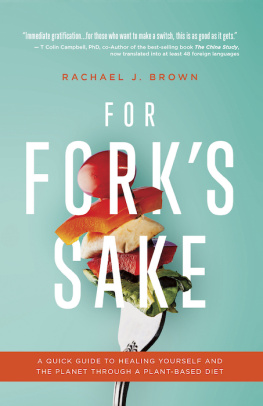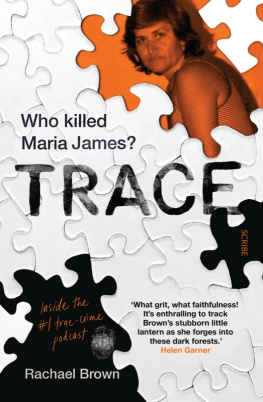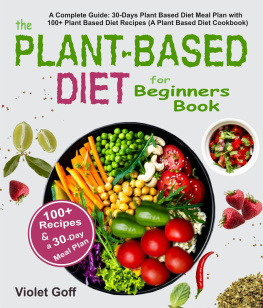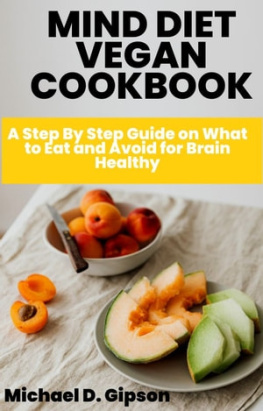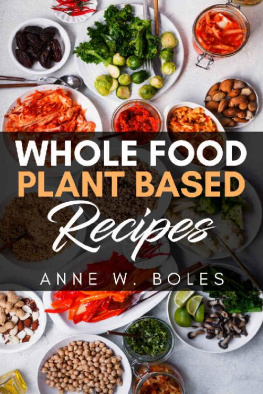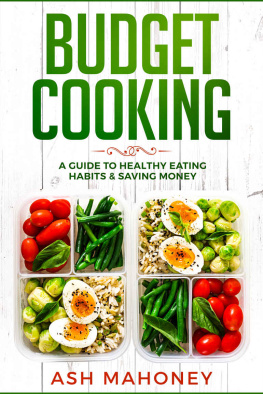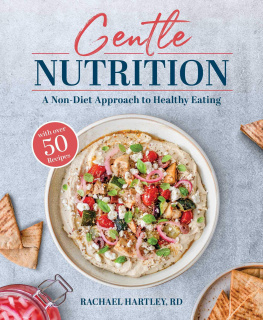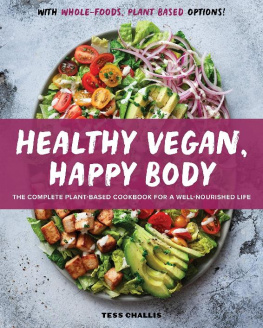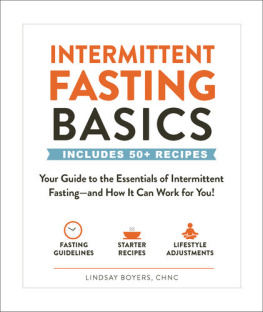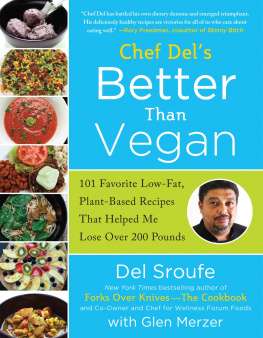

Copyright 2022 Rachael J Brown
All rights reserved. No part of this publication may be reproduced, distributed, or transmitted in any form or by any means, including photocopying, recording, or other electronic or mechanical methods, without the prior written permission of the publisher, except in the case of brief quotations embodied in critical reviews and certain other noncommercial uses permitted by copyright law. For permission requests, write to the publisher, addressed Attention: Permissions Coordinator, at the address below.

www.forforkssakebook.com
ISBN: 979-8-9861380-0-8 (ebook)
ISBN: 979-8-9861380-1-5 (paperback)
ISBN: 979-8-9861380-2-2 (hardcover)
Ordering Information:
Special discounts are available on quantity purchases by corporations, associations, and others. For details, contact .
To anyone who has wanted to make changes but felt overwhelmed by all the health information out there, I hope this helps.
And,
To my husband and kids who tried the chard smoothie and lived to tell about it, thanks for learning with me. May you always remember: YOURE GETTING ENOUGH PROTEIN.
The information in this book is for educational purposes only, and does not substitute for professional medical advice. Please consult a medical professional or healthcare provider if youre seeking medical advice, diagnosis or treatment.
Nutrition is the master key to human health.
T. Colin Campbell, PhD

TWELVE YEARS AGO, my then five-year-old nephew was diagnosed with cancer. At the time, his mom was in nursing school, and a professor asked her if shed looked at the role of nutrition in cancer and suggested a few books. My sister-in-law took this advice to heart, and in a very short period of time went from eating pork and chicken that shed raised to eating vegan and juicing.
Understand, this was the same woman whod inspired me to buy a cheese-making kit and taught me how to pull mozzarella a year earlier. Amazed by the changes shed made in such a short timeand because of her transformationI began reading the suggested books too.
Next, I started watching documentaries and did other research. The more I found out, the more I realized I needed to change my eating habits. I had personal reasons for wanting to make changes. High cholesterol ran in our family. Id tried for years to keep it under control with diet and exercise (with varying degrees of success), only to have it creep back up again. I didnt want to take cholesterol medication if I didnt have to; Id watched my dad change cholesterol medication many times after losing his sense of taste or having some other odd side effect. My grandparents had strokes and heart attacks. My paternal grandfather had Alzheimers and died of pancreatic cancer, as did my uncle. I had plenty of reasons to make myself as healthy as possible.
Our food is killing us
The top two killers in America, according to the CDC, are heart disease and cancer. Also in the top 10 are stroke, Alzheimers, and diabetes
A book called The China Study provided me the basis for new ways of looking at the role of diet in health. The author, Dr. T. Colin Campbell, found that genetics was not the main factor in whether someone got cancer. Initially, doing work in the Philippines to help feed hungry children, Dr. Campbell started to notice that children of wealthier families who were eating high amounts of animal protein had higher rates of liver cancer. Most importantly, Dr. Campbell later found that by changing the amounts of animal protein fed to rats, he could turn on and turn off cancer growth in tumors.
This was aha moment number one for me. I was thrilled to find out that my genetics werent the main determinant of whether or not I would get cancer. Why did I not know this? Why didnt everybody know this?
I was in my mid-thirties and many people I knew were getting cancer. I wasnt sure if it was because I was getting older or noticing more, but it seemed like every month someone else was diagnosed with some sort of cancer. If animal protein feeds cancer cells, then what were we supposed to eat?
It was time.
Whole foods. Plant based. No oil. (WFPBNO)
I decided to adopt WFPBNO to guide my food choices. I will go into great detail in later chapters as to what WFPBNO means and how to transition your present eating style to this new way of eating, but in a nutshell, WFPBNO is exactly what it sounds like: Whole Foods, as in foods that are as minimally processed as possible (so, actual corn rather than corn chips, whole potatoes rather than potato chips),
This isnt a diet or a set of complicated meal plans you have to follow. Its much simpler than that. Together, well find foods and recipes that will become new favorites. Likely many of the things you enjoy now youll still be able to enjoy with a few tweaks. Are you gluten-free? No problem. Where I suggest whole wheat pasta feel free to use lentil, chickpea or your favorite gluten-free pasta. Same goes for breads.
When I initially made the switch, the first question people asked me was if my family would be able to get enough protein from plants. This is still the number one question I get from people when they find out we eat only plants. Quick question: who do you personally know who is protein deficient? No one? Me neither. But people still ask.
The short answer is, youll be getting plenty of healthy protein since the eight to 10 percent recommended dietary allowance of protein,

Its not just your family, its everyones family
So far Ive only talked about the benefit of food to you and the health of your family. There is another beneficiary: the Earth.
In her book, Why We Love Dogs, Eat Pigs, and Wear Cows: an Introduction to Carnism, Melanie Joy, PhD talks about the environmental costs of carnism (a term she coined to label the belief system that conditions us to eat certain animals, like pigs, instead of, say, golden retrievers). Even back in 2006, she states, the United Nations declared the livestock sector one of the top two or three most significant contributors to the most serious environmental problems, at every scale from local to global. The UN warned, The impact is so significant that it needs to be addressed with urgency.
As the world grapples with how to keep the Earths temperature from rising, reducing our meat consumption has been found to be one of the most effective strategies. Melanie Joy continues, In 2019, an international commission of 11,000 scientists proclaimed that people around the world must shift to a plant-focused (largely vegan) diet in order to help avert a global environmental catastrophe. Animal agriculture is one of the top three contributors to water pollution. The main sources of the pollution are antibiotics and hormones, chemicals from tanneries, animal wastes, sediments from eroded pastures, and fertilizers and pesticides used for feed crops.
The runoff from animal agriculture seeps into local creeks and rivers and has led to dead zones in the oceanplaces where the oxygen levels are brought so low by pollution that plants and animals cannot survive. And its not just the water pollution that is concerning but the amount of water used as well. As
Next page
